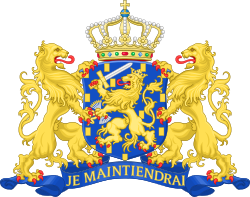This article needs additional citations for verification .(December 2009) |
| Part of the Politics series |
 |
|---|
| |
The Roman Catholic Party Netherlands (Dutch : Rooms Katholieke Partij Nederland, RKPN) was a Traditionalist Catholic political party in the Netherlands. The RKPN played a marginal role in Dutch politics. [1]